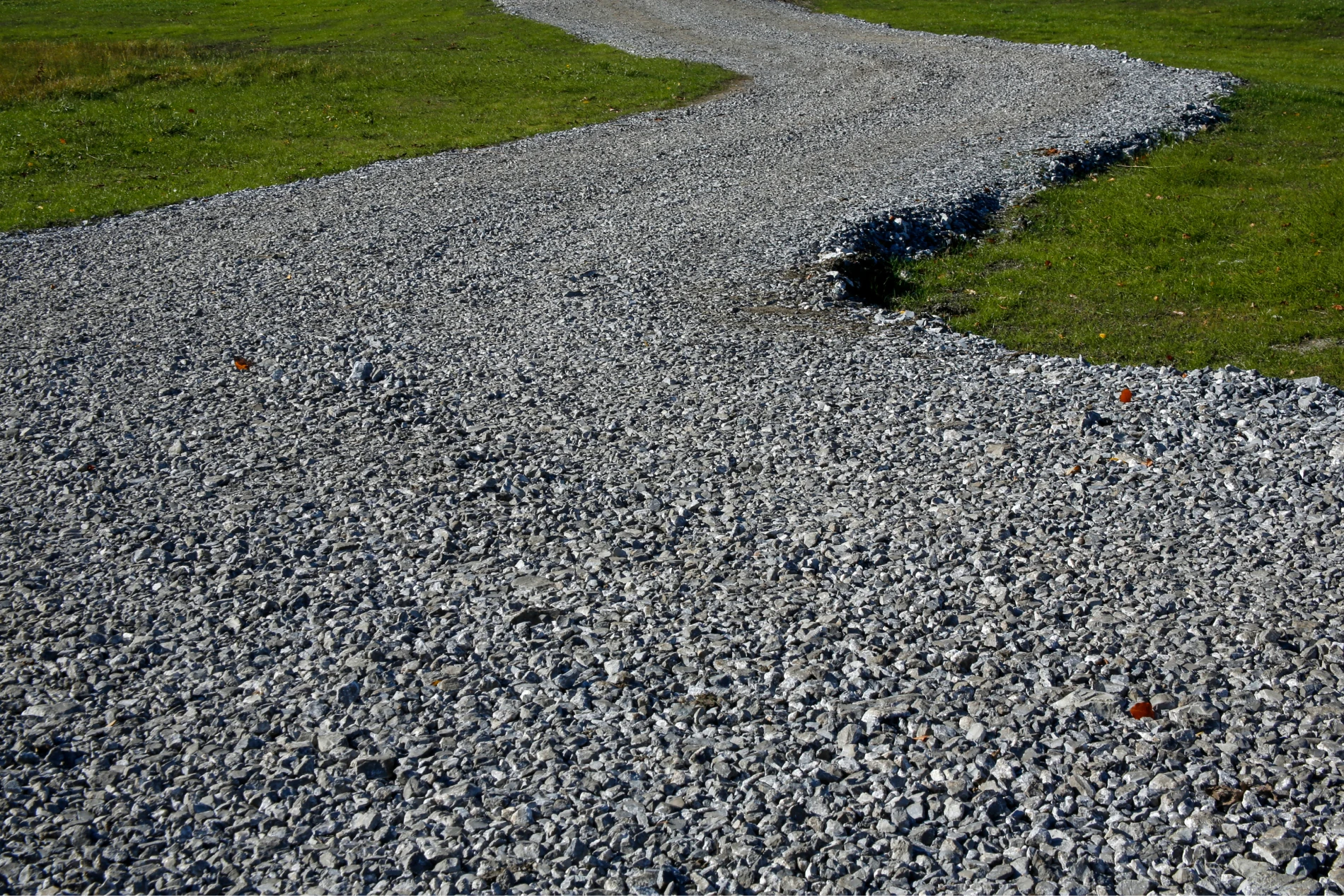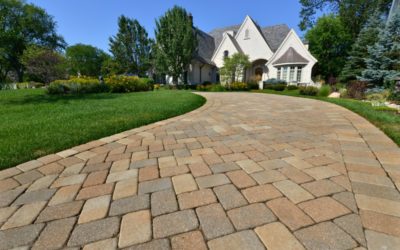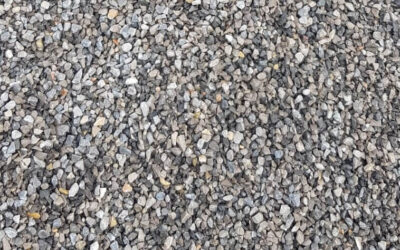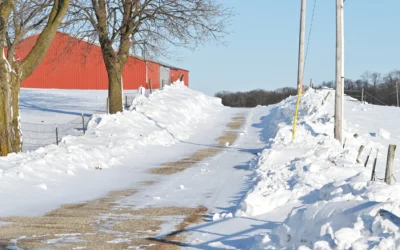Are you looking to upgrade your sloped driveway with a durable and cost-effective solution?
Gravel driveways are popular among homeowners for their affordability and versatility; However, not all types of gravel are suitable for sloped driveways. It is crucial to choose the right material that can withstand the weight of your vehicle and provide excellent traction on the incline.
In this comprehensive guide, we will explore the different types of gravel that are ideal for a sloped driveway and the pros and cons of each material to help you make an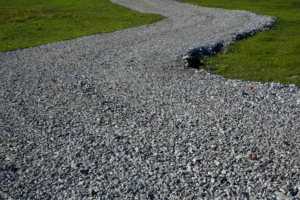 informed decision. Whether you’re dealing with heavy rainfall, frequent freeze-thaw cycles, or steep inclines, we’ve got you covered. Let’s dive in and discover the best gravel options for your sloped driveway.
informed decision. Whether you’re dealing with heavy rainfall, frequent freeze-thaw cycles, or steep inclines, we’ve got you covered. Let’s dive in and discover the best gravel options for your sloped driveway.
Understanding the Importance of Base Layers
Before we delve into the top layer options for your sloped driveway, it’s essential to understand the significance of base layers. A stable gravel driveway requires a solid foundation that promotes even surface distribution and proper drainage. The base layer consists of crushed stone and irregularly shaped rocks that compact well under pressure while allowing water to drain efficiently.
One of the most commonly used base materials for both paved and gravel driveways is CA6 Road Mix. This material provides excellent stability and drainage. It is affordable, costing around $32 per ton, making it a cost-effective choice for your sloped driveway.
Selecting the Best Top Layer for a Sloped Driveway
When it comes to choosing the top layer for your sloped driveway, different factors come into play. The slope of your driveway, the type of vehicle traffic, and the desired aesthetic appeal will influence your decision. Let’s explore the best options based on these considerations.
1. Crushed Gravel with Jagged Edges
For sloped driveways that require excellent traction and stability, crushed gravel with jagged edges is the ideal choice. This type of gravel locks into place and prevents slippage, ensuring your vehicle can safely navigate the incline. However, it’s crucial to avoid using gravel smaller than 3/8″ in size, as it can become stuck in your tire tread, leading to rapid wear and reduced traction on paved roads.
Our top recommendation for a crushed gravel top layer is 3/4″ CA7 Limestone Landscaping Rocks. These rocks offer the perfect balance between stability, traction, and aesthetic appeal. They come washed and ready to use, providing a uniform and attractive finish for your sloped driveway.
2. Pea Gravel for Flat Slopes
If your sloped driveway has a relatively flat gradient, you have more flexibility when it comes to choosing a top layer. Pea gravel is an excellent option in this scenario. It is a decorative and durable gravel that provides a visually appealing finish while maintaining good traction. The rounded stones of pea gravel offer stability without the need for excessive compaction.
Consider using pea gravel if you want to add a touch of elegance to your sloped driveway. Its smooth texture and range of colors can complement your landscaping and enhance the overall aesthetic appeal of your property.
3. Considerations for Construction Site Driveways
Construction site driveways require a different approach due to the heavy weight and larger wheels of construction equipment. To withstand the pressure, you need a larger grade of gravel. For construction site driveways, we recommend using 3″ Limestone Rocks. While these rocks may be too large for residential driveways, they are well-suited for construction sites.
By selecting the appropriate top layer for your sloped driveway, you can ensure optimal traction, stability, and durability. Assess your specific needs and consult with professionals if necessary to make the best choice.
Installation Tips for Your Sloped Gravel Driveway
Now that you have selected the right gravel materials for your sloped driveway, it’s time to discuss the installation process. While gravel driveway installation is relatively straightforward, there are a few key steps to follow for optimal results. Let’s outline the installation process to help you get started.
1. Calculate Your Gravel Needs
Before you begin the installation process, calculate the amount of gravel you need for your sloped driveway. Measure the area and determine the desired depth for each layer. To simplify this process, you can use a gravel calculator. Input the specific gravel type you have chosen and your measurements to determine the quantity of gravel required.
2. Choose Suitable Edging Materials
Edging materials play a crucial role in maintaining the integrity of your gravel driveway. They help contain the gravel and prevent it from spreading onto your lawn or other areas. Additionally, edging materials can add an attractive border and complete the overall look of your driveway.
Consider using large decorative stones, bricks, or timber as edging materials. These options provide both functionality and visual appeal, enhancing the overall aesthetics of your sloped driveway.
3. Excavate the Driveway Area
Prepare the driveway area by excavating it to the desired depth. Remove any turf, topsoil, and weeds to create a clean surface. Use a rake, backhoe, or compactor to grade the surface of your driveway, ensuring it is flat and compacted. It’s important to maintain a slope of 2-5% from the edges to the center to promote proper drainage and prevent erosion.
4. Install Edging Materials
Before adding the layers of gravel, install the chosen edging materials along the perimeter of your driveway. The edging should be slightly taller than the top layer of gravel to contain it effectively. Build up the edging if needed once the driveway is complete.
5. Lay the Gravel Layers
Start by pouring the CA6 Road Mix onto the prepared area. Use a rake or backhoe to spread it evenly, creating a smooth and compacted base layer. Consider using a mechanical compactor to further compact the base layer for optimal stability.
Next, add the top layer of gravel, whether it’s crushed gravel with jagged edges or pea gravel. Distribute it evenly across the driveway, ensuring that the edges are slightly higher to facilitate proper drainage. Use a rake or backhoe to level the gravel and create a visually pleasing finish.
Maintaining Your Sloped Gravel Driveway
Once your sloped gravel driveway is installed, proper maintenance is essential to ensure its longevity and performance. Here are some key maintenance tips to keep in mind:
- Regularly inspect the incline of your driveway and redistribute the gravel if necessary to maintain the desired slope and prevent erosion.
- Keep weed growth under control by using a weed barrier during installation or applying a weed repellent to eliminate existing plants.
- Rinse your gravel driveway with water a few times a month to remove dust buildup and maintain its appearance.
By following these maintenance practices, you can ensure that your sloped gravel driveway remains in excellent condition for years to come.
Choosing the right gravel for your sloped driveway is crucial to ensure stability, traction, and durability. Consider the slope of your driveway, the type of vehicle traffic, and the desired aesthetic appeal when selecting the base and top layers. By following the installation tips and proper maintenance practices, you can enjoy a beautiful and functional gravel driveway for years to come.
Remember to calculate your gravel needs accurately, choose suitable edging materials, and install the gravel layers evenly to create a smooth and visually appealing surface. With the right gravel and proper installation, your sloped driveway will provide safe and reliable access to your home or property.
Request a Quote (859-635-5680) And We Will Contact You Shortly!
Calculate How Much Material You Need For Your Project
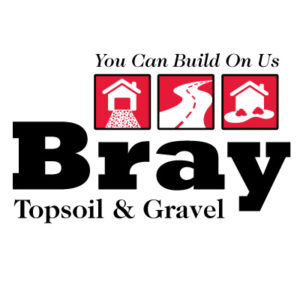
—
About Bray Topsoil & Gravel
Topsoil and gravel delivered to you by Bray Trucking, a specialized aggregate hauler servicing the Kentucky, Ohio, and Indiana region.
>>Learn More
.

